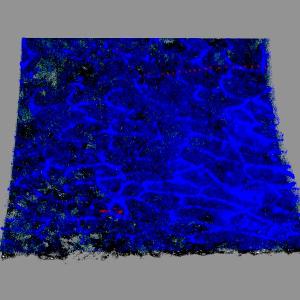2023-11-02 スウォンジー大学
◆この研究は、孤独感が自閉症者および非自閉症者の両方にとって、苦痛と精神的健康に関連していることを確認し、感覚差が他の社会的、社会的、感情的要因と相互作用し、孤独感と関連した苦痛が増大する原因となる可能性があることを示しています。
<関連情報>
- https://www.swansea.ac.uk/press-office/news-events/news/2023/11/study-examines-the-devastating-impact-of-loneliness-on-autistic-people.php
- https://www.liebertpub.com/doi/10.1089/aut.2022.0062
「私は手を差し伸べようとしている、仲間を見つけようとしている」: 自閉症と非自閉の成人における感覚の違い、孤独感、精神的健康との関連についての混合法による調査 “I’m Trying to Reach Out, I’m Trying to Find My People”: A Mixed-Methods Investigation of the Link Between Sensory Differences, Loneliness, and Mental Health in Autistic and Nonautistic Adults
Lisa Quadt, Gemma Williams, James Mulcahy, Dennis E.O. Larsson, Marta Silva, Andrew J. Arnold, Hugo D. Critchley, and Sarah N. Garfinkel
Autism in Adulthood Published Online:2 Nov 2023
DOI:https://doi.org/10.1089/aut.2022.0062

Abstract
Background: Rates of loneliness are substantially higher among autistic compared with nonautistic individuals. This observation refutes the persistent stereotype that autistic individuals are not motivated to seek meaningful social relationships. More plausibly, social environments systematically exclude people with higher levels of sensory differences, impeding on opportunities for autistic individuals to form meaningful relationships. In this study, we sought to quantify the level of distress associated with loneliness (Study A) and provide complementary qualitative insight into experiences of loneliness in relationship to sensory differences in autistic adults (Study B).
Methods: In Study A, N = 209 participants completed a range of self-report questionnaires. In Study B, nine autistic adults took part in 10-minute unstructured dyadic conversations around the topic of loneliness. We derived a qualitative understanding of autistic individuals’ experience of loneliness, enriched by inductive and deductive analyses.
Results: In Study A, the autistic group showed significantly higher levels of loneliness, loneliness distress, anxiety, depression, and sensory reactivity. We found significant positive correlations between variables, but no group differences in differential relationships. The effect of sensory reactivity on anxiety and depression was mediated by levels of loneliness in both groups. In Study B, autistic participants described the pain of feeling lonely and socially disconnected, while simultaneously experiencing a need for restorative solitude after social overstimulation.
Discussion: Our results indicate that sensory differences are related with higher loneliness and associated poor mental health in both autistic and nonautistic adults. This effect was exacerbated in autistic adults due to higher levels of sensory reactivity. First-hand reports from autistic adults on intense loneliness and the obstructive role of sensory environments refute stereotypes about a lack of social motivation in autistic adults. We conclude that to enable meaningful and inclusive social interaction, a societal effort is needed to create spaces that consider the sensory needs of all neurotypes.
Community brief
Why is this an important issue?
Research shows that autistic people experience loneliness more often than nonautistic adults. It also shows that sensory differences contribute to higher loneliness, and that both sensory differences and loneliness are related to poor mental health, such as anxiety and depression. However, we do not know if this is unique to autistic adults, or something that also occurs in nonautistic adults. There are also not many studies where autistic people themselves describe loneliness, and how they link their loneliness to sensory differences. Finding out about whether there are differences in autistic and nonautistic people regarding loneliness, and letting autistic people put their thoughts about loneliness into their own words is important to learn more about how we can start to tackle the high rates of loneliness in autistic adults.
What was the purpose of this study?
Our goal was to ask autistic people how they experience loneliness, and to empirically test whether the links between sensory differences, loneliness, and anxiety and depression are present in autistic people only, or also in nonautistic people.
What did the researchers do?
We conducted two separate studies. In Study A, we asked autistic and nonautistic adults to fill out questionnaires about their loneliness, how distressed they are by loneliness, anxiety, depression, and how they experience the sensory environment. In Study B, we asked eight autistic adults to speak with each other and nonautistic participants about their experiences with loneliness. We gave them some conversation starters and then looked for common themes that came up in the conversations.
What were the results of the study?
In Study A, we found that autistic people were more distressed about being lonely, and had higher levels of loneliness, depression, anxiety, and sensory differences than nonautistic participants. However, in both groups, sensory differences were related to higher anxiety and depression, and loneliness was an important influence on this relationship. This finding was supported by Study B, where autistic participants described that they often struggle to make meaningful connections because their sensory sensitivities keep them from going out.
What do these findings add to what was already known?
Our findings show in a scientific way that loneliness is just as bad for autistic as nonautistic people. We also find that sensory sensitivities might play a role in making autistic people lonelier.
What are potential weaknesses in the study?
Our study sample does not represent the entire autism spectrum. All our participants were able to speak and travel to the study venues with little support. Our study participants were also mostly White, and our study can, therefore, not speak about the experiences of autistic people across different ethnic groups.
How will these findings help autistic adults now or in the future?
We hope that our findings will support the idea that loneliness is indeed a distressing experience for autistic people, and that society as a whole recognizes the need to create welcoming sensory environments that help to overcome the disconnect that many autistic adults experience.


